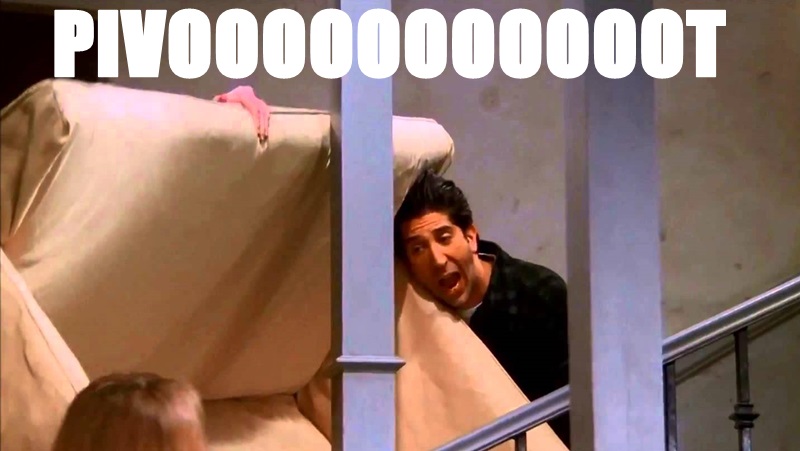Are you in a world of emotional hurt, having to constantly deal with conflict in your marriage?
Do you and your spouse easily fall into the typical marriage fighting traps?
Well, I have some BAD news for you…
You and your spouse are headed down a dangerous road for your marriage if you find yourselves constantly arguing, bickering, fussing, and fighting.
This guide will be one of the most comprehensive discussions of fighting in marriage that you will come across. And the reason, is not just because I want to provide you with the highest quality of content as it applies to conflict management in your marriage; but more specifically, I believe this topic is hugely important to the stability of your relationship..
In this guide, I will be addressing the following themes as they apply to how you relate to your husband or wife:
- The End State of Your Fight
- Causes of Conflict in Your Marriage
- The Negative and (Positive) Effects of Fighting
- Practical Strategies you Should Adopt to Deal with Marital Conflict
- What Does Fighting Fair Mean and How Do You Achieve It
- After the Fight: Moving Forward
I would also encourage you to take a look at the post below if your husband is mistreating you as it will give you some insights into how you might want to go about handling the overall situation.
What is the End State of Fighting With Your Husband or Wife?
So let’s start peeling back the layers of what married couples can do to straighten out some of the mess they can create for themselves and there is no better place to begin than the end.
Hold it, are you sure you read that right? Why would we want to start at the end? Why not start at the beginning?
Well, it is simple. When we think about the important things in our lives such as having a serene, relatively conflict free and joyful marriage, it serves us to “start with the end in mind”.
So how do we do that? Well, let me ask you, what do you seek in the end immediately following a fight with your husband or wife?
Do you look for a place to go hide? Let’s hope not, because that can’t be good. Do you seek to just put some distance between you and your spouse to recover or have some time to cool down? Does the fight temporarily end, then quickly erupts again into another knock down drag out bitter contest of wills? Do you and your lover make up rather quickly offering each other your sincere and genuine regrets for your role in the fight?
You know, there are just so many ways fights end, such that we need to ask ourselves is there an optimal way for a fight to end such that it does not create any lasting damage to your marriage? Well, I certainly think so and it’s learning how you deal with EXPECTED conflict in your marriage that will define your path of resolution.
The reason why I emphasize that fights with your husband or spouse should be “expected” is because having conflict and flair ups in your marriage is normal. It is unavoidable. Unless you both live the life of monks, constantly meditating, there will be occasions when one or both of you will just “blow up” and a fight will ensue.
We are creatures of an imperfect union we call “marriage”. It is imperfect because we are uniquely different and not completely compatible in every respect. There is nothing wrong with this picture, because it reflects an underlying truth of relationships.
It is what we do in our efforts to form a more perfect “union” that defines the successes and failures of our marriage. So as a relationship consultant, I am also interested in the “end” of your fight because it serves as a benchmark as to how healthy your marriage is.
Let’s make sure we are on the same page here. When I say I am interested in the “end” of your fight, I am not talking about the two of you ending your fighting. Of course, you and me both would like to see you experience fewer fights with your loved one. What I mean by “end”, in the context I used above, is the immediate aftermath of your fight.
You see, how you and your lover end up the fight tells me something about your marriage and informs us of whether you and your spouse follow and obey the rules of a fair fight. What are these rules and why are they so important?
We will explore these questions and more soon, but let’s turn our attention to the causes of conflict in your relationship with your married partner.
Causes of Conflicts in Marriage
When you think about it, we are probably the most stressed out species on the planet. When I look around the animal kingdom, I am hard pressed to find cases of other animals that experience the degree of stress and anxiety that we humans seem to experience daily, hourly….actually even more frequently.
Why is that, I wonder? You see, I like to ask questions about such things, particularly when it relates to relationships and more specifically when it touches on our tendency to engage in conflict.
My clients deserve to understand why marriages can be so difficult, but most importantly what they are seeking are relationship solutions.
I do have one working theory that is supported by science. Obviously, one of the major causes of conflict in marriage (though clearly not the only one) is the spiraling stress levels we all experience. There are a variety of triggers that cause the stress, literally thousands of things that can set off stress, which can lead to conflict in your relationship.
Powerful is the Present Moment
Let’s return to our discussion about the animal kingdom. I think one thing that animals do extremely well is their ability to live in the “present moment”. A pet dog comes to mind. They seem entirely wired to live in the present. Humans, on the other hand, struggle with this way of living.
To often, husband and wives borrow worries and anxieties from the past or the future and dwell on them to an extent that it causes undue conflict and hardship within the marriage.
A great thinker of the 18 century, Jonathan Goethe (born 1749), once said, “the present moment is a powerful goddess”. I think there is a lesson to be learned from Goethe and the rest of the animal Kingdom. I think if we were to ask Yoda, he would say, “Powerful is the Present Moment”.
You see, too often marital couples initiate fights because of high levels of stress introduced by the environment around them. Their fights can also easily emerge from anger and resentment held over from the past. This can intensify the feelings of stress. Or you and your lover can end up arguing about concerns and worries over the future.
I think conflicts between husband and wife can be minimized to a large degree if each individual can take a lesson from most of the animals in nature, and spend more of their time in “the present”. I mean really, can both Goethe and Yoda be wrong!
There is considerable evidence that some individuals suffering from Post Traumatic Stress Syndrome (PTSS) perform poorly when given various medications that is supposed to help them with stress, anxiety, depression, and fatigue. But what does seem to work well, according to the researchers, is meditation. It puts them in a place that is calm and naturally tranquilizing, while also giving them perspective.
Now, I am not a meditative kind of guy, though I think that will change. I don’t do Yoga (I almost said Yoda!) or perform quiet meditative exercises. But I am a “relationship” guy and I can be persuaded by solid, scientific evidence.
The fact is that “meditation” has helped many millions of people and particularly those engaged in stress, anger, and conflict. Meditation is essentially what Goethe was talking about when he encouraged us to live in the present moment. In these serene moments of relaxation, stress and conflict can be relieved substantially.
I definitely believe there are some practical ways you can incorporate this lesson we have taken from nature. I believe your relationship can be abundantly better if you understand the workings of the human mind. And I think there are some useful ways you can avoid as well as recover more quickly from a marital dispute through relaxation techniques. We will get into these things a bit later. Just know that a leading cause of marital strife is stress and you are not helpless. Why not do something constructive to address this problem. Now say after me….Ummmmmmmmmmmm.
So what are some of the other causes of fights between couples? Well, there are a lot. More than I have time to discuss, though we will cover some of the key ones. Which kind of gives you a hint that once we are through talking about the causes, the spotlight should be on how to effectively manage the conflict. Right! Remember, you are not going to head off at the pass every fight. What you will want to do though is develop some skills in dealing with a fight once it’s gotten started. And guess what? What you do right after fight matters a lot as well.
Old Relationship Baggage
This is the grab bag of marital fights among men and women. As humans, we have this thing called, “memory”. It can serve us well and sometimes can tear us down, particularly if we start agonizing and obsessing over something that happened in the past. And this is how a lot of fights between couples get started. Someone dredges up some old issue and in many cases those feelings have not been resolved and quickly erupt into an emotional tirade.
You have heard it from me before….when emotions run high, logic runs low. It does not take much for the old baggage of prickly feelings to be resurrected.
Borrowing Anxiety From the Future
Another common problem for married folks is one or both will start thinking far too much about the future, worrying about things for which they have little or no control. This is a sure recipe for stress. And we know what stress can do, right? If ever there was a catalyst for creeping marital fuss, it’s letting your mind completely off its leash so it can conjure up all kinds of unbelievable scenarios. I consider this a emotional wedge problem. It’s letting unrealistic notions of the future get between you and your spouse.
I think to varying degrees we all do this. It’s natural to think about the conseqences of things that have yet to happen. The problem is when one or both of the married partners dwell on the negative, borrowing anxiety from the future. I think this tendency to worry about things excessively is something a person needs to work on individually because unrealistic worries can act as hair triggers for marital conflict. This is due to the fact that the worrier naturally seeks to find an outlet for their anxiousness or insecurity.
Elsewhere here on this website, I have talked about “Becoming the Best Version of Yourself”. If you have a problem in this area of your life, add this to your list of things you want to improve because it can make a meaningful difference in your life.
Lack of Sufficient Intimacy in the Marriage
This potential conflict starter is a very common problem that can run the gambit as an occasional problem between the married partners to one that has consistently plagued the marriage for years.
When the husband or wife are citing they are not in the mood or are too tired….guess what? The person may be too tired and not in the mood. Getting on the same page with our sex drives is a bit of a biological balancing act.
In these moments, I turn to Yoda for advice (well, not really, but he can be instructive). Yoda tells us many things about your sex drives (the “Force”) such as:
“A Jedi strength flows from the Force. Beware of the dark side. Anger, fear, aggression; the dark side of the force are they. Easily the flow, quick to join you in the fight”
When you think about it, the sexual experience is indeed a powerful force within us all. So when there is a “disturbance” in this force, no wonder it can cause us to get a little crazy, disrupting the marital bliss.
Intimacy is not always about sex. You or your lover may be frustrated and/or resentful for the lack of simple gestures like kissing, hugging, brushing aside the hair with one’s hand, a light touch of the face, holding hands, and literally dozens of other small, but important little gestures and acts of intimacy.
All these things that make up intimacy signal to your partner that you love them. When they ebb away or are taken away suddenly, then conflict will be knocking on your door.
Money Fights Can Put Out the Marriage Lights
This should be no surprise to anyone. Fighting over money is not uncommon. It can be about how it’s used or whether you will have enough. I see money fights as symptoms of a larger problem which consists of a lack of planning, communication, and transparency. It is not unusual to have some anxiety about money matters. Just know that if this is the primary source of your fighting, then you are in luck as there are some specific actions you and your spouse can take to remedy this problem as a source of fights. And it starts and ends with Communication. Planning and transparency about your financial matters is the byproducts of communication. After that, “all you have to fear, is fear itself” as Winston Churchill told the world.
Fighting Over The Kids
There is no doubt that when you add children to the marriage mix, things can become even more stressful for all the obvious reasons. Your time now gets divided among more things and the lack of personal time is a stressor and the lack of time alone with your lover can also contribute to future conflicts.
Also, when you have children and as they enter the formative years and teen years, you and your marriage partner may find yourself at odds on parenting strategies and a host of other developments. But I like to look at the positives. You children can provide you with one of the most precious gifts on the blue planet…..a two way street to “love”.
Fussing Over House Chores
Little to big fights can easily breakout if the couple has not worked out a plan on how they will go about sharing in the household duties. What often happens, is one person starts keeping score as to who has done what around the house, then resentment builds and eventually turmoil unfolds. Isn’t interesting how easy it is to avoid such fights by developing and agreeing to a household chore game plan. Yet, more often than not, this matter does not get addressed until a big fuss transpires.
Conflict over Work & Lack of Time Together
When you are married and both of you are working, you can suffer from the big time crunch. If you have children, then the conflict over time together is magnified. I chose to combine these two causes because they often go together, hand in hand.
It is easy for any of us to become prisoners to our careers or hobbies, such that it pulls us too far away from our role as husband or wife. And that is usually how things progress….it happens very slowly and before you realize it, the routines of your marriage have changed and you are picking fights with each other.
Like I said earlier, there are a ton of things that couples fight over. Here are a few more. Note that they could stand out as exceptionally problematic for your relationship, but I list them in my honorable mention category simply because the solutions to many of the conflict starters we are discussing have a similar root foundation which we will get into later. The other catalysts to marriage fights include:
- Conflict over Friends
- Annoying and Irritating habits
- Unrealized Expectations
- A Controlling Spouse
- Distrust/Marital Affairs
- Conflicts Triggered by Close Family Members
So there you have it. Certainly this is not a complete list, but it does cover the brunt of how fights originate. Oh, before we get into the effects of fighting with your spouse, let me mention one more problem starter. It’s interesting. I elected to do some research to see what other relationship experts have to say about this topic on things that couples fight about. There is ONE BIG one they seldom list. Indeed, it is the big elephant in the room.
I have to say that much of the literature out there is woefully incomplete. I hate to even point it out, because it is not a pleasant thing to talk about. But truth needs to be served. Remember, this applies to just some couples, not the majority. But one huge factor in marital disputes is that one of the partners (sometimes even both partners) is just plain “mean spirited”
What do I mean by mean spirited. Well, if you are married to someone who is just mean, you know exactly what I am talking about. Unfortunately, some individuals are not always guided by the “better angels” in their heart. Indeed, such people are not very nice people, putting it mildly. Perhaps this just happens some of the time. When it happens frequently, then you have a very serious problem. For any number of different reasons, these individuals just suck up all of the positive energy and replace it with negativity. They are often described as mean, narcissistic, selfish, overly aggressive, cruel, overly possessive and controlling.
Whatever the cause of the conflict, couples will at times get it on and not in a nice way either. So what is the effect on marriages when you and your marital partner engage in a war of the words. Well, let’s take a look at that.
The Effect of Marriage Fights
When we typically think about the effects of fighting with one’s spouse, the normal reaction is to think of it is a destructive force. Just as Yoda pointed out, fear, anger, resentment and aggressive behavior is the byproduct and it just becomes quite easy to repeat the behavior over and over again.
Another negative outcome is broken trust. When you join a person in marriage, the idea is that the two of you are to become a union. When you are fighting, that union is broken. It becomes severed and damaged.
When one is engaged in aggressive behavior, the tendency is to say and do things that you later regret. But once you let the genie out of the bottle, it is nearly impossible to put it back where it belongs. The ugly things you say to strike back at your spouse in the midst of anger and frustration are catalysts for new fighting points. Before you know it, the topic that began the fight is now lost in the wake of new things you are doing battle over.
This whole phenomenon is like going nuclear. One conflict talking point tips over another and another, and soon you find yourselves arguing about things that range from the ridiculous to the absurd.
If you break it down to the damage done, it covers the gambit from emotional, spiritual, and physical. All of the trust and positive feelings you have invested into your marriage can in a blink of an eye be compromised. People can literally become physically ill from the emotional battering they experience when fighting with a loved one.
Often, the outcome of hostilities between you and your marital partner is the reinforcement of negative routines. Once you let the “cat out of the bag”, it is likely to run amok. Such is the downside of marital strife. As the couple makes withdrawals from the positive things you have built up in the “marriage bank”, you become more vulnerable to bankrupting the marriage.
But guess what? Fighting is not always a destructive force. Usually it is, but not always. As we discussed earlier, we humans have a way of building up stress from all sorts of things. As stress levels rise, the need to relieve them grows. And sometimes, a fight can help extinguish the fire burning inside you, provided that the fight follows the rules I outline below. The idea is to put out the fire that is causing conflict. If it is a stress induced fight, then you have every opportunity of turning the marital fight into a positive.
Or perhaps there is something that is just hanging over your heads. Perhaps it is something that needs to get discussed because the resentment has been building and it finally results in some angry exchanges. This too can be an opportunity to take a negative….squash it…..and move forward with a stronger bond.
You know, when you break a bone, some people think, “Oh my goodness, the person is damaged forever”. But sometimes, depending on the severity of the break and how its repaired, the individual can mend and become stronger than before. Important issues can get resolved once they are discussed. The problem could be something the couple has avoided and it might take a fight to get the problem on the table so you both can eventually address it, repair the damage, and strengthen the bond.
In some cases, things need to get broken, in order to get fixed. Now, this is not a “call” for you to go out and start a fight. But you should know that everyday, people turn a lemon into lemonade.
Practical Strategies for Avoiding Marital Conflict
So here is where the rubber meets the road. If fighting is more often than not, a negative thing, then what can we do prevent it from happening?
Remember, you will never be able to avoid all fights. Indeed, as we discussed, conflict within your marriage can be a healthy thing in the long run. But too many cases of hostility in the marriage can be debilitating.
I have talked about the importance of “Positivity” in one’s marriage. Being kind, generous, and offering praise is like a tonic to the soul of a marriage. If you and your spouse form a union, practicing the principle of “positivity” is like the glue that holds you together. And one of its many benefits is that it keeps conflict within the marriage at a bare minimum.
I encourage you to go visit the Home Page of this website to learn more about this principle and others if you wish to insulate yourself from unnecessary spats and other destructive forces that can damage your union.
My wife and I are fond of reminding each other that we are “one person”. We like to think of ourselves as a union because what happens to one, is felt by the other. We believe we are in this journey of life together and are joined at the hip. Now of course, we are two different people and we have our own hobbies and interests. Indeed, I encourage all individuals who are married to become the best version of themselves.
But, if you and your loving partner embrace an attitude that you are “one”…that your marriage is an entity in which you both hold an equal spiritual share, then marital conflict becomes very infrequent.
Soft Start Up
This technique is extremely effective in helping diffuse potential problems in communication. Often, when we want to confront our spousal partner on a sticky, potentially prickly topic, we just go right into it. Perhaps it is something that has been on our mind and we just want to get it out and dealt with. I see this happen so frequently when coaching people about their relationship challenges. Instead of thinking, planning, and executing….they just jump to the execution part and the results can be very poor.
Behaviorists have done numerous studies and believe that one of the best things you can do to prevent conversations from ramping up into conflict is to employ a technique called, “Soft Start Up”.
It essentially works in the way that it sounds. If you have something you wish to explore and probe with your spouse, then do so with the softest tone and language you can muster. Avoid using accusational tones or blaming right out of the gate. All this does is put your loved one on the defensive. If you wish to have a constructive conversation and avoid the prospect of the discussion turning into an argument, then go slow. Taking slow, little steps is the name of the game. Even to the extent that you actually change the cadence (speed) of your voice and your movements.
Have you ever been around a horse. Well, if you start moving quickly, talking quickly, touching too quickly….guess what? You are going to spook the horse.
Drive Thru Communication
Another argument avoidance technique you can employ is a process that works similar to when you use the drive thru at your nearest McDonald’s or other fast food joint. As you know, when you pull in you usually have a mindful of what it is you want to order. You tell the order taker what you want, then that person repeats it back to you to confirm they understood what it is your want.
Well, in relationships, sometimes your spouse really has something important to tell you. Or maybe, for whatever reason, the two of you are getting fussy with each other. The idea here is you need to slow down this situation that is unfolding to avoid the whole conversation from ratcheting up. To accomplish this, you use the drive thru technique.
This is how it works. One person initiates the communication and shares what is on their mind. The other person listens carefully, without interruption, no matter how long it takes. That is key. Just the process of listening can pay dividends and helps reduce the tension and anger lingering in the air. Then when the individual is through with expressing what’s on their mind, the other person summarizes or repeats essentially what this individual said to reinforce they were listening and understood the person’s perspective on the matter. Once that is accomplished, then the other person gets their turn to express their view. Likewise, the spouse of this individual will repeat back what they heard and respond further as may be needed.
When I think of anger, I think of thoughts on the rampage moving quickly and destroying everything in their path. It is as if the person is temporarily possessed. Quite literally, a different part of the brain has take over. What you want to do is slow things down. I will say it again, “when emotions run high”….guess what happens…logic runs low. You don’t want to be a willing participant to the chaos that can quickly engulf both marriage partners. Remember, take everything slow (voice, movements, soft tones, etc).
Timing is Everything in Relationships
There is this well known phenomenon that happens to us all when confronted with fear and anger…the dark side of our emotions. Essentially, people are evolved to respond with either a flight or fight response. Neither is a particularly healthy way of resolving conflict. So just know that when things get ramped up in your relationship and you are staring each other down, certain primitive emotions have a way of cancelling out your better side and before you know it, things are tumbling out of control.
One way to keep the ‘crazy” out of your relationship is to recognize that “timing” is a very valuable ally. You need to know that you are biologically conditioned to just get things off your chest as soon as you can. It like it’s part of your default emotional programming. Well, the software relationship engineers who designed you did not properly anticipate that you or your spouse sometimes will go off half cocked, at any moment. Remember, we are very complicated creatures.
Well guess what? I have a new “app” for you to use. I want you at this moment to recognize that there is an optimum time to raise certain issues. If there is a topic to discuss that has the potential for conflict, then choose the wisely the time to discuss this issue. Don’t do it when you or your spouse are hungry. That can be a fussy time. Appetites or other physical needs should be met. There is considerable science behind the release of positive endorphins when you drink and consume, tasty, delicious food.
Don’t get into the matter just when your partner has come home from work or when you have some kind of time crunch you are dealing with. It is better to wait when things are more relaxed and you and your spouse are rested. Also, don’t time the discussion in the middle of doing something fun, because now that makes you a “spoiler” and a person bearing potentially bad news.
Take a Break
Do you ever watch sports? Well, the coaches for sports teams are often quite clever about their use of timeouts. Sometimes when things are not going so well and to change the momentum, the coach will call a timeout giving his players a break to settle down and come up with a new strategy.
Well, that is what I want you to do if your discussion start quickly spiraling into a full fledged argument. There is no need to ride that wave of negative emotion. You are allotted as many timeouts or breaks as you think may be necessary. When you use this technique, be sure to communicate to each other clearly your intent to resolve the matter in the very near future.
Do you see the trend here? With these ideas we have been talking about, the underlying premise is to slow things down….to exercise patience….and to get things back on a more positive track.
Now, I don’t believe there is any magic number of minutes that works for all couples when they choose to take a break. It largely depends on the kind of people that make up the marriage, their history of conflict, and a host of other variables. My experience is that a break ranging from “15 to 60” minutes works for many. It is not too long such that people will worry that the issue will never to be resolved. And it does allow time for most, if not all, the angry feelings to subside. A like to call it the “Cooling Off Period”. When emotions run high….
Remember, fighting with your loved one is just part of the way in which your marriage will operate. So you need to learn some skills to become a better fighter. The object is not to train you to win because both of you lose when you fight. Rather, the object is to reduce the damage done. It is time to go into a training.
How To Fight Fair with Your Husband or Wife
I like to think of conflict or fighting with your beloved spouse as a zero sum game. No one really wins. You both end up taking some punches to the emotional gut, creating opportunities for anger, distrust, and resentment to linger and creep back into your marriage.
You notice how when professional fighters prepare for a fight, they agree to a set of rules. There is no hitting below the belt. There is no heading behind the head. And when they are engaged in the fight, they take breaks. Then when the fight is all over, they meet in the middle of the ring, embrace and wish each other well.
So, since you know that someday you will be fighting with your partner, then you both need to get educated on the rules of a fair marital bout. I don’t say that lightly. Nor am I a pessimist. I think of myself as a pragmatist. As we discussed earlier, no matter how wonderful your marriage, you and your wife or husband will eventually fight. None of us are perfect….we are only human and are unable to live up to our own high standards.
So by knowing that, then learning to fight in a constructive way in accordance with some guidelines, then steering the dialogue in the right direction, you can avoid causing lasting damage to your marriage. And sometimes you can turn a negative into a positive. Not always, but some of the time.
So what are the fair marital fight rules? Let’s take a look at the high, hard ones!
- No personality statements – What this means is that you will not succumb to calling each other names or make inappropriate statements about each other’s personality, looks, weight, etc.
- No Profanity – Curse words in a fight are like little missiles that are launched in haste with no consideration of the harm it causes. All it does is serve to ramp up the anger and resentment.
- Utilize one or more of the practical strategies discussed above.
- No aggressive physical gestures or contact – Once you start in with abrupt and angry finger pointing and aggressive posture or worse, abusive physical contact, the fight needs to stop immediately because you are doing great harm.
- Avoid mean spirited, ugly tones or shouting – This kind of behavior will get you no where in a hurry. When these things happen, you are no longer fighting. You are bullying or have become a victim of a bully. Walk away from the fight and tell your partner that a long timeout is needed because you refuse to be bullied.
- Keep it Private – If you are going to have conflict, then make sure it is someplace private so your children or others do not have to witness the behavior.
- Observe a Time Limit – just like in any bout, there is a clock running. You and your partner should agree on principle that if you ever engage in a fight, then the conflict should not exceed a specific time period. If the fight just keeps boiling over, without resolution, then you are both losing big time. I recommend that you both agree to throw in the towel after 10 minutes or less. This includes all of the other little break out fights that happen after the main fight. If you can’t get your issue resolved after 10 minutes, then you should agree to take time out and pursue the problem later
- One Fight at a Time – what happens often in a marriage fight is the two combatants are going at it and one or both of them start dragging in other issues from the past. Before you know it, you have switched from one fighting issue to another and another, until you can’t even remember what started the battle. Just tackle one topic at a time.
- Be “Good” Losers – Just as I described, you are both losers when you fight. No one wins. Invariably, during the course of the fight, one or both of you will offer an “olive branch” in the form of a heartfelt apology or acceptance that your point is the stronger argument. Even if you are still reeling emotionally over the whole episode, always except the olive branch. I guarantee you, if you do not accept the olive branch with praise and good spirit, the fight will rage on at a much higher level. It’s like kicking someone when they are down.
So let’s say you buy in and accept that obeying all of these rules will help your marriage. By the way….they certainly will! How can you ensure that your spouse will obey the same rules?
Well the solution is remarkable simply. Just as fighters going into the ring have a contract, you too should have one with your spouse. Now, I am not talking about a formal contract, but what you can do is discuss pragmatically with you husband or wife that if you ever wage war of the words, you both will agree to a certain set of rules.
Make the discussion a fun experience. Post your rules on the fridge, to be reminded of the pack you both agree to. Consider it an insurance policy. And by the way, I would not call it “Fighting Fair” or “Fight Rules”, rather the two of you should come up with an endearing name like “Love Each Other Rules” or something along those lines.
After the Fight – Moving Forward
So when you and your spouse have finally come to your senses, ending the fight, it is time to apply that loving bonding agent. I think of it as a magical marital glue that if applied liberally, can help erase the conflict hangover.
Yep, you heard that right. When we fight, we all suffer from an emotional and physical hangover. The couple will feel spent and possibly, one or both may still harbor a few negative leftover thoughts. Most relationship experts ignore this period following the fight. You just don’t see a lot of advice out there on this topic. But I think it is a hugely important time The period after a fight is like a swinging door. The door will either swing close and the two of you are back to your normal life existence. Or the door can swing open and you can walk through and do something very special that will leave a positive lasting impression.
Einstein was a pretty smart guy. He was also very clever and insightful. He is quoted as saying:
“In the Middle of Difficulty, lies Opportunity”
So what I want you to do is pull an “Einstein” and take advantage of the conflict situation the two of you have just experienced. You need to PIVOT.
The Emotional Recovery Pivot
I think of it as emotional pivoting. And it needs to happen rather quickly. Don’t wait until the next day. Even waiting a few hours can take away from your effort to lay down a surprising, positive tone. This should take the form of a positive, surprise action that is both genuine and loving.
Once when I was foolish enough to fall down the slippery slope of fussing with my better half, I quickly recovered, resolved the dispute, apologized and then surprised her. What did I do? Well, I told her I would go out and get something for us to eat. Which I did. But I also knew there was a floral shop nearby and I went by and scooped up a dozen roses. While she was happy about me going out to pick up one of her favorite meals, she was delighted that I also brought home roses.
Another way you can pivot away from the fight hangover is to literally put it to bed. There is a reason why they call it “make up sex”. Studies show that lovemaking immediately following a conflict can be extremely fulfilling. The reason is what is characterized as “arousal transfer”.
When you are fighting, you are aroused. This state of arousal does not always subside and is transferred into your lovemaking. This is the same mechanism that is occurring in our brains when we are around something risky and scary. The fear that the person feels can be transferred to a higher sexual arousal state if an opportunity presents itself. This is why scary movie date nights for a lot teenagers is so popular. The excitement of the movie can transfer to a higher arousal state in the minds of the teenagers.
Some psychologists argue that make up sex following a couple’s fight is not a good thing because it reinforces that fighting leads to sex, so presumably people will fight more. Well, I am not buying that. I agree with those psychologists, relationship experts, and my own clients who report that make up sex is fulfilling and serves as an excellent way of re-bonding.
In closing, there are a lot of ideas here in this guide. Read it a few times to make sure it all sinks in. Be sure to check back as I will be writing a new marriage relationship guide very soon!




















